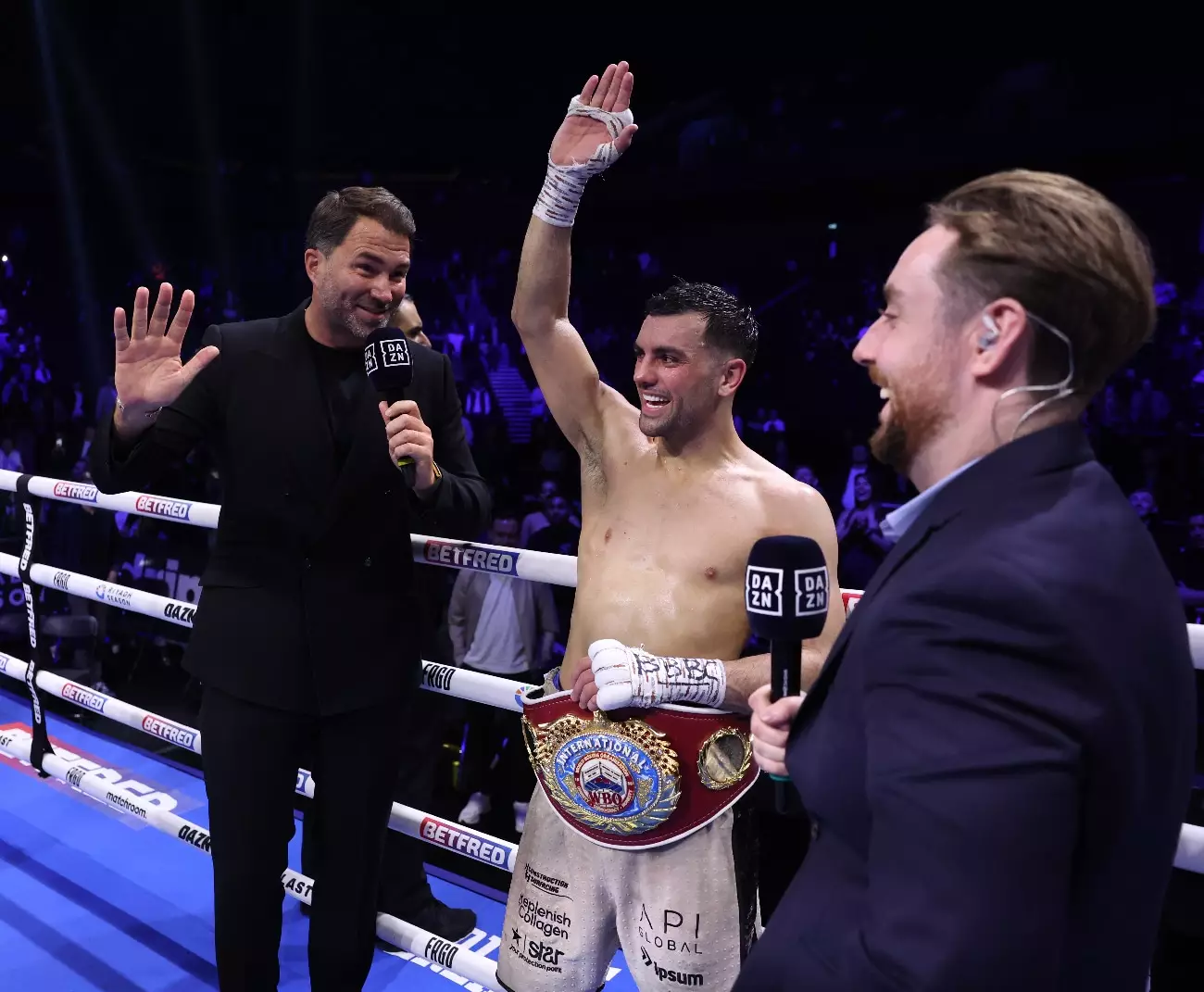Jack Catterall’s recent victory over Regis Prograis showcased not only his skill in the ring but also highlighted the intricate dynamics of boxing promotions and match-making. With promoter Eddie Hearn expressing satisfaction with Catterall’s unanimous decision win, the boxing world is now buzzing with possibilities, particularly regarding a potential title fight for the IBF light welterweight belt. This significant win has raised questions about Catterall’s future opponents and his path to becoming a household name in the sport.
Catterall delivered a masterclass performance at the Co-op Live Arena in Manchester, defeating the former two-time champion Prograis in a match that saw him score two knockdowns in the ninth round. Initially, the fight appeared to skew in favor of Prograis, who was momentarily in control, having knocked Catterall down in the fifth round and securing early rounds with his aggressive style. However, as the fight progressed, Catterall’s resilience came to the forefront, turning the tide decisively in his favor.
The judges’ scorecards reflecting margins of 117-108, 116-109, and 116-109 suggests that the impact of those two knockdowns was monumental in altering the judges’ perceptions of the fighter’s control in the later rounds. Catterall’s ability to absorb punishment while effectively landing damaging punches demonstrates his tactical proficiency inside the ring.
It is worth noting the psychological warfare that unfolds in elite boxing fights. Prograis, while a formidable competitor, seemed to falter mentally after suffering those crucial knockdowns. His reluctance to follow his corner’s directives to push forward in an attempt to regain momentum indicates a potential crisis of confidence. The psychological elements of boxing can often be as important as physical prowess, shaping outcomes in ways that statistics alone cannot measure.
Hearn’s post-fight mention of Catterall’s underappreciated punching power echoes a sentiment that the industry should not dismiss his abilities lightly. Many in boxing circles might underestimate Catterall’s capacity to deliver knockouts based on his previous fight styles. However, the Prograis match proved that he can compete at the highest levels by employing strategic movements and utilizing his power effectively.
Looking ahead, Hearn has made it clear that he is eager to get Catterall into a title fight, potentially against the winner of the impending clash between Liam Paro and Richardson Hitchins. While this is a promising pathway, Catterall’s lack of recognition in the U.S. boxing market poses significant hurdles. Although he has proven himself in the ring, attracting lucrative fights against household names such as Ryan Garcia, Devin Haney, or Teofimo Lopez may prove challenging.
Hearn’s expressions of doubt regarding these high-profile matches largely stem from Catterall’s defensive fighting style, which may not resonate with a broad audience. Promoters often seek boxers who can not only perform but also produce engaging narratives and excitement for fans. In contrast, Catterall’s comparable style to that of Shakur Stevenson, a fighter who has successfully built a following through strategic self-promotion, indicates a significant gap in the promotional landscape.
Adapting his fighting approach may be necessary for Catterall to secure the “big-money fights” that every fighter aspires to. While he has shown an ability to execute a successful tactical plan against highly regarded fighters like Prograis, a more aggressive approach might capture the attention of promoters and fans alike. As it stands, Hearn faces a dilemma in how to promote Catterall to savvy boxing audiences who may have a preference for more explosive fighters.
Furthermore, international factors complicate Catterall’s situation. Promoter Turki Alalsikh’s preparations for the Riyadh Season brings to light how logistical and strategic planning by promoters can influence a fighter’s opportunities. The draw of more “exciting” matchups could lead to fewer openings for Catterall unless he can reshape public perception and engage a larger following.
Jack Catterall’s victory over Regis Prograis marks a significant chapter in his boxing career. With clear potential for title shots looming on the horizon, the desire for stardom is palpable. However, bridging the gap between skill and marketability remains crucial for his ascension in the boxing hierarchy. While he demonstrated that he is a tough competitor who can perform at elite levels, adapting his style and enhancing his public presence will be essential to transforming his potential into realized opportunities. Whether through refined fighting strategy or promotional efforts, Catterall has the chance to carve his niche in the sport, but now must navigate the complexities that come with it.

